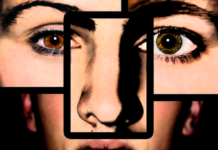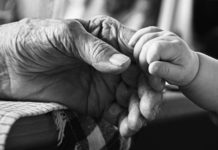Pilot Study Adapts Open Dialogue for US Health Care
In an article for Psychiatric Services, psychiatrist Christopher Gordon and his colleagues report on the results of a one-year feasibility study attempting to implement...
Lack of Face-to-Face Contact Doubles Depression Risk for Older Adults
New research suggests that more frequent in-person contact lessens the risk of depression in older adults. The study, published in this month’s issue of the Journal of the American Geriatric Society, found that in Americans over fifty the more face-to-face contact they had with children, family and friends, the less likely they were to develop depressive symptoms.
Researchers Question “Gold Standard” Status of Cognitive Behavioral Therapy
Researchers argue for plurality and diversity among psychotherapy approaches and question the perceived superiority of Cognitive Behavioral Therapy (CBT).
Alternative Therapies for Adolescent Depression as Effective as CBT, Study Finds
Brief psychodynamic and psychosocial interventions help maintain reduced depressive symptoms
Study Finds No Correlation between Personality at 14 and 77
This result calls into question popular notions about the correlations between personality and later-life achievement and health outcomes.
Massachusetts Launches New Strengths-Based Early Psychosis Program
ServiceNet, a mental health and human service agency in western Massachusetts, received a three year, two million dollar grant to launch a program designed to support young adults who have recently experienced their first episode of psychosis. The Prevention and Recovery Early Psychosis (PREP) program is funded by the Massachusetts department of mental health and is designed to treat psychosis as a symptom, not an illness, resulting from other illnesses, substance abuse, trauma, or extreme stress.
“Listen Up! Day 3: Take a Breather”
Day 3 of WNYC Only Human’s radio show, called Listen Up, focuses on the importance of listening with empathy. They interview Ken Feinberg, a mediator who met with victims after the September 11th attacks, the Sandy Hook shootings, and the Boston marathon bombing.
Study Finds Hearing Voices Groups Improve Social and Emotional Wellbeing
Hearing Voices Network self-help groups are an important resource for coping with voice hearing, study finds.
“Can Madness Save the World?”
Writing for CounterPunch, Paris Williams writes that when an individual is experiencing what has been termed “psychosis,” it is important to recognize that this may also be the manifestation of a breakdown in their larger social groups, the family, society, and even the species.
New Study Investigates Negative Side Effects of Therapy
Researchers find that nearly half of cognitive behavioral therapy (CBT) patients experience treatment side effects.
“A Compassionate Approach Leads to More Help, Less Punishment”
“Published in the journal PLoS ONE, a new set of studies suggests that compassion—and intentionally cultivating it through training—may lead us to do more to help the wronged than to punish the wrongdoer. Researchers found compassion may also impact the extent to which people punish the transgressor.”
Schizophrenia’s Tangled Roots
From Sapiens: Researchers are increasingly recognizing the role that social and environmental factors, including childhood abuse, stressful events, and poverty, play in the development of...
Researchers Develop New Model for Understanding Depression
Acknowledging that current depression treatments are failing many people, researchers from Michigan State and MIT have developed a new model for understanding how multiple psychological, biological, social and environmental factors contribute to depression.
Screen Time Linked to Increased Depressive Symptoms Among Teens
New study examines how increased screen time and social media may be contributing to depressive symptoms and suicide risk in teens
Can a Conceptual Competence Curriculum Bring Humility to Psychiatry?
Training for conceptual competence in psychiatry provides a new way forward to address theoretical and philosophical issues in mental health research and practice.
The Fictions and Futures of Transformative Justice
In this interview for The New Inquiry, two co-editors and three writers of Octavia's Brood: Science Fiction Stories From Social Justice Movements discuss prison abolition and...
“Open Dialogue: Finland’s Alternative Approach to Mental Illness”
"Almost 30 years ago a group of clinicians in Finland decided to treat psychosis differently. Their approach, known as Open Dialogue, has impressive recovery...
Neoliberalism Drives Increase in Perfectionism Among College Students
Meta-analytic study detects upsurge in patterns of perfectionism in young adults and explores how neoliberalism contributes to this trend.
Tom Arnkil on “Unconditional Respect for the ‘Otherness’ of Other People”
Tom Arnkil on the book he co-authored with Jaakko Seikkula, and the necessity for the "Unconditional Respect for the 'Otherness' of Other People."
Research Finds Parents’ Trauma May Impact Children’s Health
Study uncovers some of the intergenerational consequences of adverse childhood experiences (ACEs).
In Praise of Patience as a Prescription for Trauma
For Aeon, Samira Thomas writes that while resilience is attracting a lot of attention from psychology, patience in an underexplored and undervalued virtue in...
Mindfulness Therapy May Be More Effective Without Antidepressants
While an estimated 74-percent of patients diagnosed with major depression receive a prescription for an antidepressant, new research reveals that mindfulness-based cognitive therapy (MBCT)...
Saved by the Book: Can Reading be More Effective than Medication or Therapy?
“Studies show that self-help books can resolve readers’ depressed moods, change ingrained thought patterns, and instill a renewed zest for life – as long as the advice within is scientifically sound,” Elizabeth Svoboda writes for Aeon. “The literature we choose to guide us should supply proven advice we can trust. But it should also, as Franz Kafka wrote, be ‘the axe for the frozen sea within us’, bludgeoning us in ways that awaken us to the extraordinary.”
JAMA Article Challenges CBT as Gold Standard for Psychotherapy
A review of CBT research findings raises questions about its status as the “evidence-based” psychotherapy of choice.
“Does Psychoanalysis Have a Role in Modern Mental Health Care?”
Lynne Malcolm, for ABC’s All In the Mind program, interviews three psychoanalysts about how their field remains “relevant and useful in the contemporary therapeutic...





















